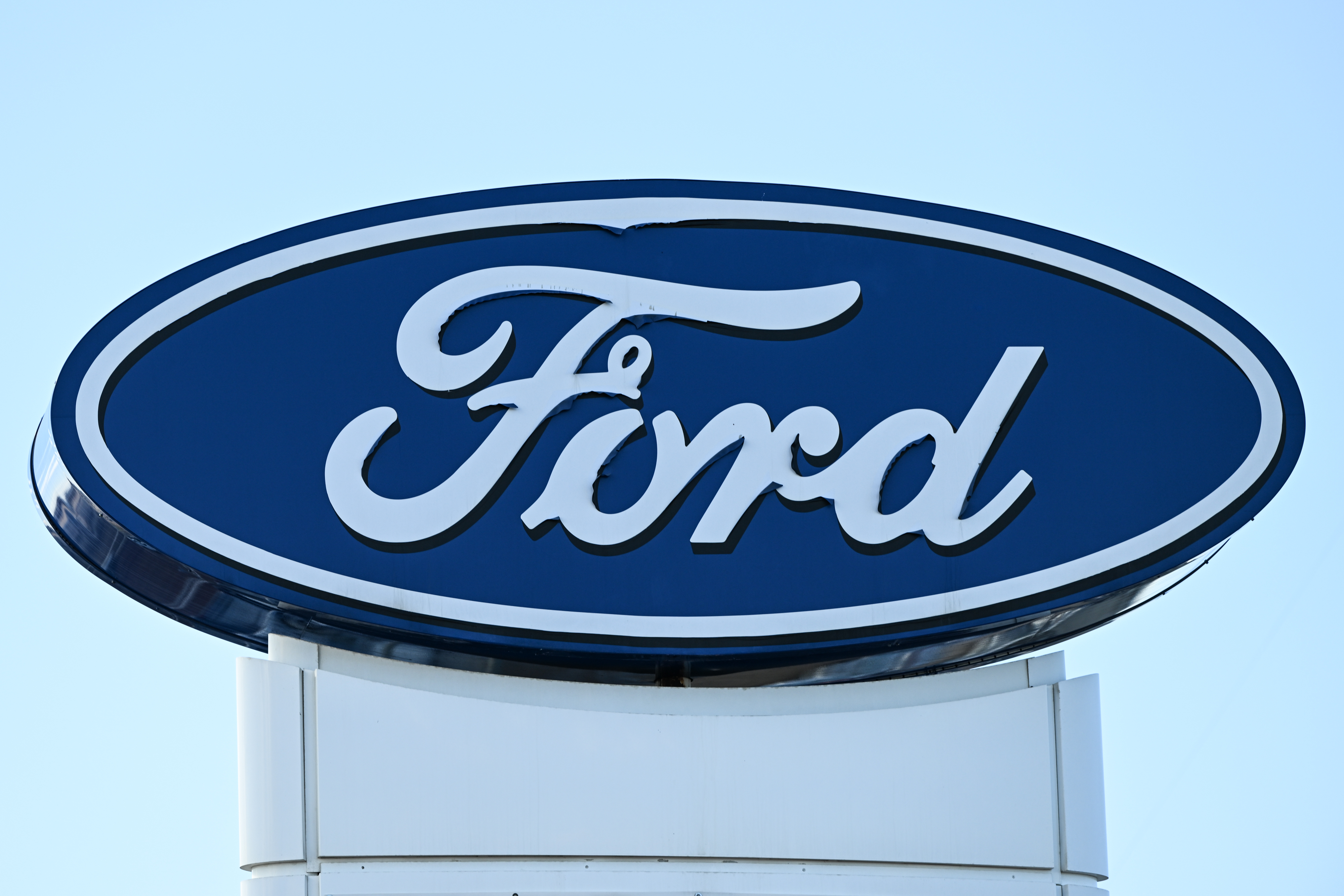Ford Recall: Is Your Car on the List? Check Now!
Ford Recalls: Is Your Vehicle on the Brake & Software Issue List?
Are You Driving a Recalled Ford? Here's How to Find Out
Ford Motor Company has recently announced a series of recalls affecting several popular car models in the United States. We're talking about over 120,000 vehicles potentially impacted! On April 14th, Ford issued advance notices for at least two separate safety recalls. One focuses on a potential issue with the brake master cylinder, potentially affecting a huge number of vehicles. The other involves a software glitch within the Powertrain Control Module (PCM). So, the big question is: could your Ford be on the list? Let's dive in and find out!
The Brake Master Cylinder Recall: What's the Big Deal?
One of the most significant recalls involves a potential problem with the brake master cylinder. What exactly does this mean for you as a driver? Well, the brake master cylinder is a vital component of your vehicle's braking system. It's responsible for transmitting the force from your brake pedal to the brake calipers at each wheel. If it malfunctions, you might experience reduced braking power or even complete brake failure. That’s a scary thought! This recall impacts over 120,000 vehicles, so the scope is quite broad.
What Could Happen if the Brake Master Cylinder Fails?
A failing brake master cylinder can manifest in a few ways. You might notice:
- A softer or "spongy" feeling brake pedal.
- Increased stopping distance.
- In extreme cases, complete brake failure.
Any of these scenarios can significantly increase the risk of an accident. That’s why it's crucial to check if your vehicle is affected.
The PCM Software Glitch: A Digital Dilemma
The second recall focuses on a software issue within the Powertrain Control Module (PCM). The PCM is essentially your car's brain, controlling various engine and transmission functions. A software glitch in the PCM could lead to unexpected or erratic vehicle behavior. This recall affects more than 24,000 vehicles.
How Can a PCM Software Problem Affect My Driving?
A faulty PCM can cause a variety of problems, including:
- Erratic shifting of the transmission.
- Stalling or hesitation during acceleration.
- Incorrect readings from sensors affecting fuel economy and performance.
- In some cases, unintended acceleration or deceleration.
While not as immediately apparent as a brake problem, a PCM issue can still compromise your safety and control of the vehicle.
Affected Ford Models: Is Your Ride on the List?
Ford hasn't released a comprehensive list of specific models and years affected by these recalls in this initial announcement. The only information made available is that they issued advanced notice for at least two safety recalls for several car models and years. To find out if your vehicle is on the list, you'll need to follow the steps outlined below to check using your VIN (Vehicle Identification Number).
How to Check if Your Ford is Part of the Recall
The easiest and most reliable way to determine if your Ford is subject to either of these recalls is to use your VIN. Here's how:
- Locate Your VIN: Your VIN is a unique 17-character identifier for your vehicle. You can find it on:
- Your vehicle's dashboard (driver's side), visible through the windshield.
- Your vehicle's registration card.
- Your vehicle's insurance card.
- The driver's side doorjamb.
- Visit the Ford Recall Website: Go to the official Ford recall website. You can usually find it by searching "Ford recall check" on Google or your preferred search engine.
- Enter Your VIN: Enter your 17-digit VIN into the provided field and click "Submit" or "Check."
- Review the Results: The website will then tell you if your vehicle is subject to any open recalls, including the brake master cylinder or PCM software recall.
Don't delay! Check your VIN today!
What to Do If Your Ford is Recalled
If your vehicle is indeed part of the recall, don't panic! Here's what you need to do:
- Contact Your Local Ford Dealer: Schedule an appointment with your local Ford dealership as soon as possible.
- Explain the Recall: Inform the service advisor that your vehicle is subject to the brake master cylinder or PCM software recall.
- Follow the Dealer's Instructions: The dealership will inspect your vehicle and perform the necessary repairs or software updates free of charge.
Remember, these repairs are covered by Ford, so there's no cost to you.
Why Are Recalls Important?
Recalls are issued when a manufacturer identifies a safety-related defect or a failure to comply with federal safety standards. They are a crucial part of ensuring the safety of drivers and passengers on the road. Ignoring a recall can put you and others at risk.
The Manufacturer's Responsibility
Manufacturers have a legal and ethical obligation to address safety concerns promptly. When they discover a defect, they are required to issue a recall and provide a remedy to vehicle owners.
Past Ford Recalls: A Recent History
This latest round of recalls comes shortly after a previous recall in December 2024, where nearly 300,000 Ford diesel-engine trucks were recalled due to a potential issue with the fuel pump. This highlights the importance of staying informed about potential safety issues with your vehicle.
The Importance of Regular Vehicle Maintenance
While recalls address specific manufacturing defects, it's also important to maintain your vehicle regularly. Routine maintenance, such as brake inspections, oil changes, and tire rotations, can help identify potential problems before they become major safety concerns. Think of it like visiting the doctor for a checkup – preventative care is always best!
Staying Informed: Resources for Ford Owners
Staying informed about recalls and other safety-related information is crucial for every vehicle owner. Here are some resources you can use:
- The Ford Recall Website: As mentioned earlier, this is the official source for Ford recall information.
- The National Highway Traffic Safety Administration (NHTSA): The NHTSA website (nhtsa.gov) also provides recall information for all vehicle manufacturers.
- Your Local Ford Dealer: Your dealer can provide you with updates on recalls and other service-related information.
The Impact of Recalls on Ford's Reputation
Frequent recalls can impact a manufacturer's reputation and consumer confidence. While recalls are intended to address safety concerns, they can also raise questions about quality control and reliability. Ford is likely working to address these concerns and improve its manufacturing processes.
The Future of Vehicle Safety: Technology and Prevention
The automotive industry is constantly evolving, with new technologies aimed at improving vehicle safety. Advanced driver-assistance systems (ADAS), such as automatic emergency braking and lane departure warning, are becoming increasingly common and can help prevent accidents. As technology advances, we can expect to see even more sophisticated safety features designed to protect drivers and passengers.
Is Ford's Quality Control Slipping?
It's easy to jump to conclusions when a manufacturer announces multiple recalls, especially in a short period. Are quality control measures lacking? Is Ford rushing production to meet demand? While these are valid questions, it's important to remember that the automotive industry is incredibly complex. Even with rigorous testing and quality control procedures, unforeseen issues can arise. The key is how quickly and effectively a manufacturer responds to these issues.
How to Prepare for a Recall Repair Visit
So, you've confirmed your Ford is on the recall list and you've scheduled an appointment. What's next? Here's how to prepare for your visit to the dealership:
- Gather Your Paperwork: Bring your vehicle registration and insurance card with you.
- Clear Your Schedule: Recall repairs can take some time, so be sure to allocate enough time in your day for the appointment. Ask the service advisor for an estimated completion time.
- Ask Questions: Don't hesitate to ask the service advisor any questions you have about the recall or the repair process.
Conclusion: Stay Vigilant and Informed
Ford's recent recalls highlight the importance of staying vigilant and informed about potential safety issues with your vehicle. Checking your VIN, understanding the recall notices, and promptly scheduling repairs are crucial steps in ensuring your safety and the safety of others on the road. Don't ignore recall notices! They are there to protect you. By staying informed and taking action, you can help make our roads safer for everyone.
Frequently Asked Questions
- How long will the recall repair take?
The repair time depends on the specific recall and the complexity of the repair. Contact your local Ford dealer for an estimated completion time when scheduling your appointment.
- Do I have to take my car to a specific Ford dealer for the recall repair?
You can take your vehicle to any authorized Ford dealership for the recall repair. Choose the one that is most convenient for you.
- What if I already paid to fix the problem that the recall addresses?
If you previously paid to repair the issue covered by the recall, you may be eligible for reimbursement from Ford. Contact Ford customer service or your local dealer for information on how to submit a claim.
- Will the recall affect my vehicle's warranty?
No, a recall does not affect your vehicle's warranty. The recall repair is performed free of charge to address a specific safety-related defect.
- Where can I find more information about Ford recalls?
You can find more information about Ford recalls on the Ford recall website (search "Ford recall check" online) or the NHTSA website (nhtsa.gov).

